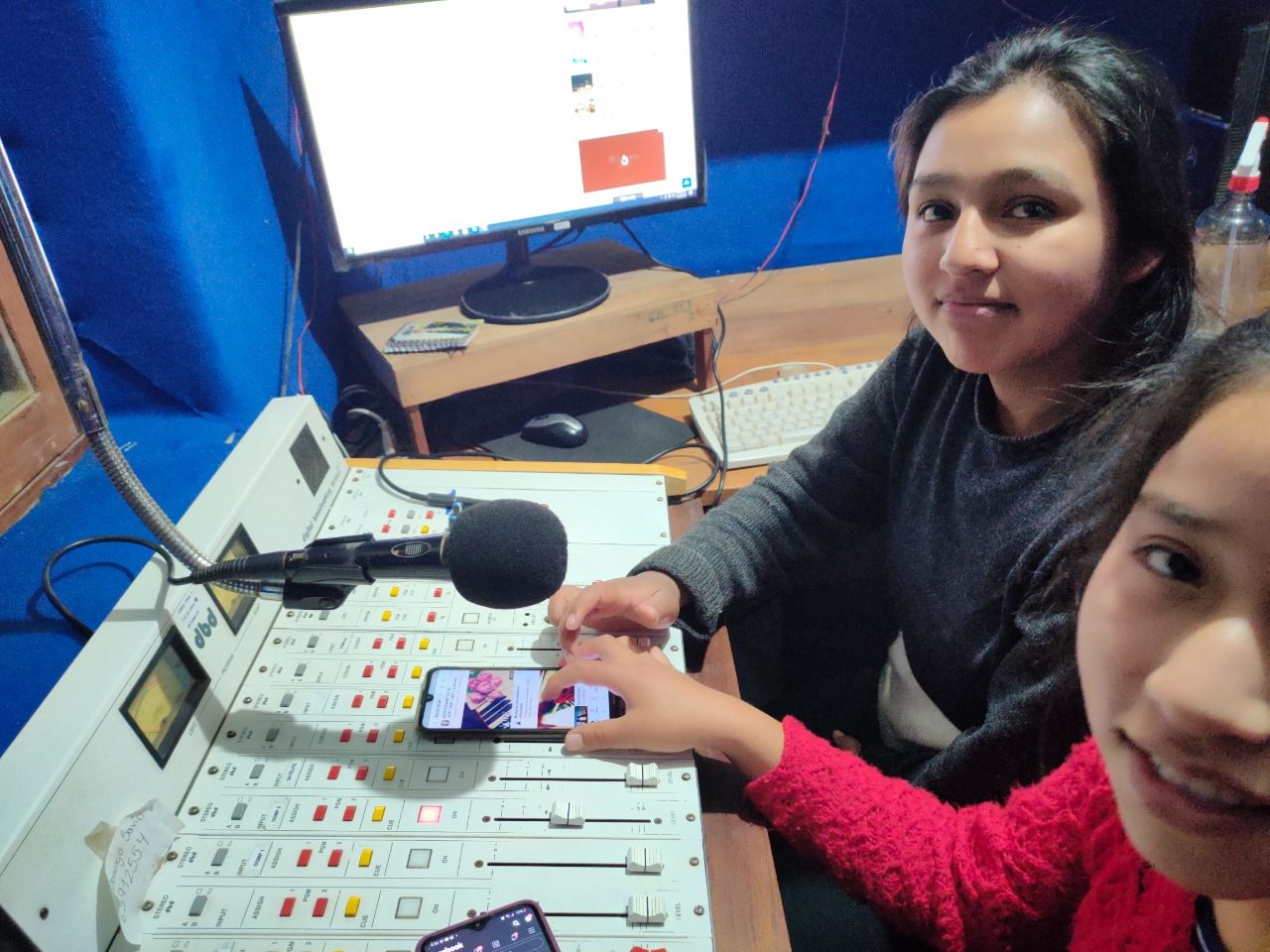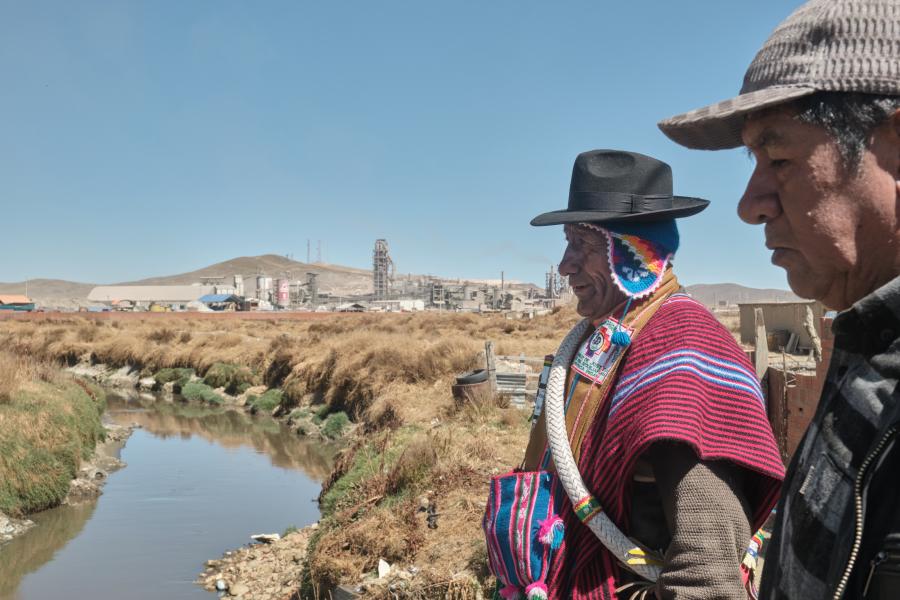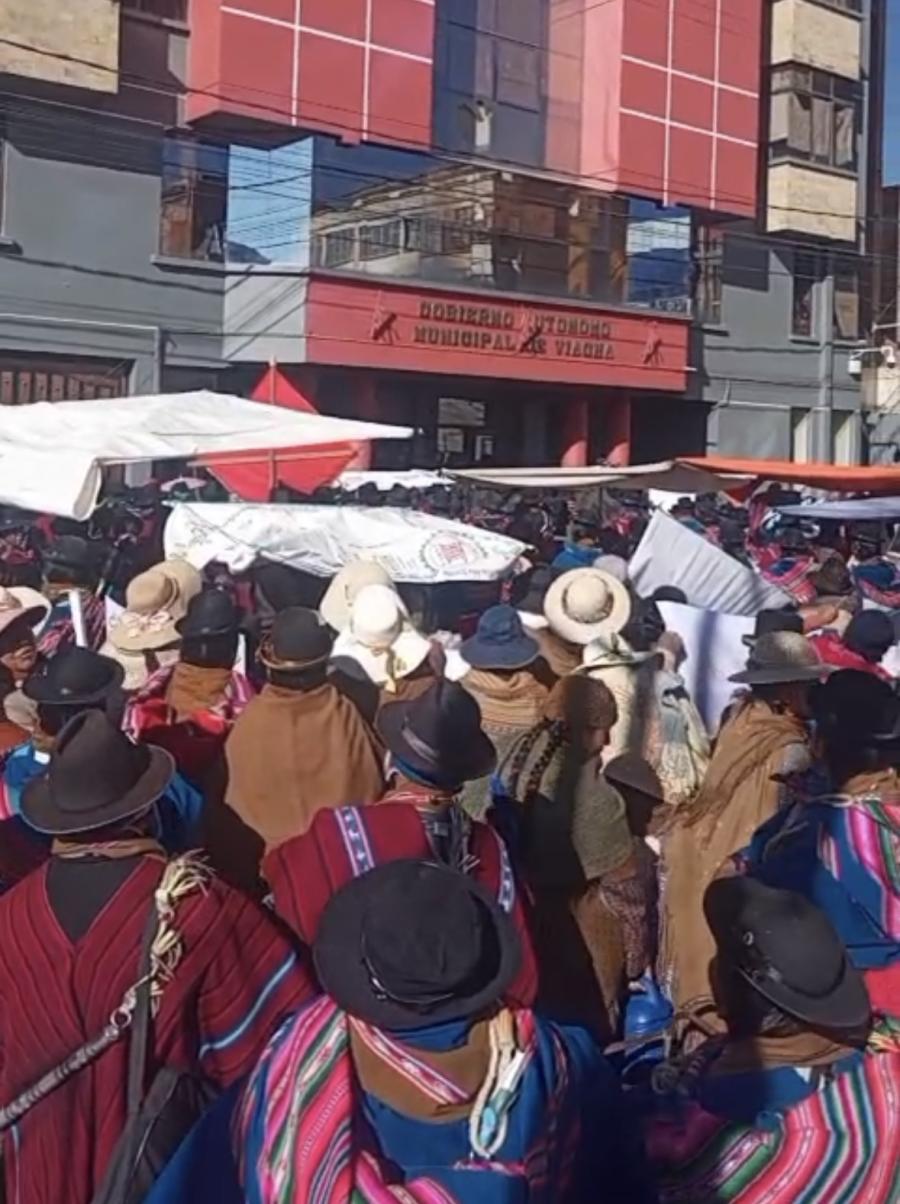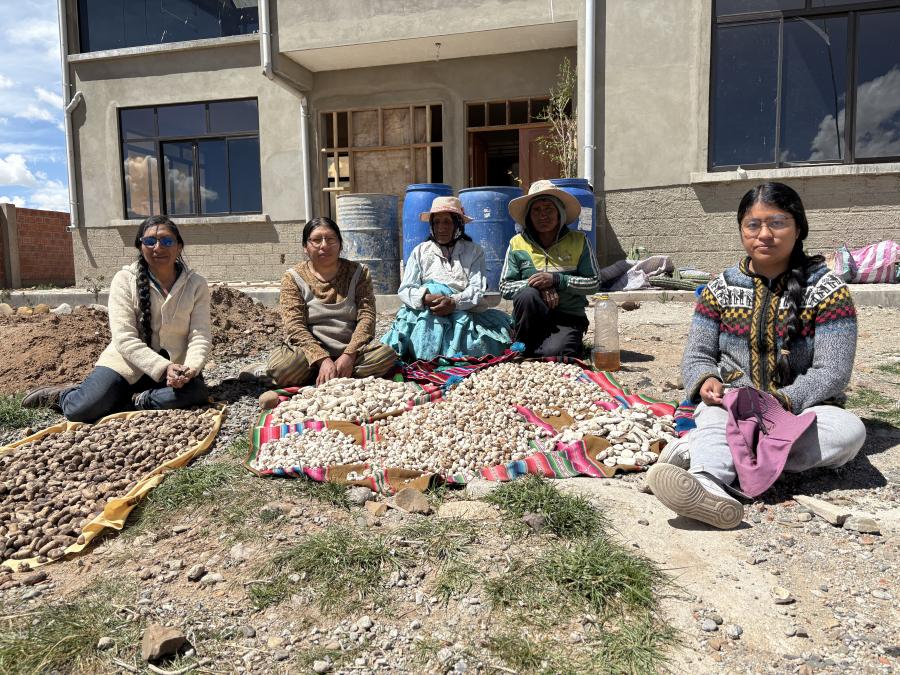
By Marizol Huarachi Colomi
Imagine traveling 150 kilometers from Cochabamba, Bolivia for approximately 5 hours and with great caution to reach the municipality of Independencia on a dirt access road that is narrow and winding. This journey is an opportunity to see dazzling desert, tropical, and valley landscapes and to experience their respective climates.
The activities that sustain this municipality are agriculture and mining. Its population is of Quechua origin and a small number of Aymara. It is a place where customs, beliefs, and traditions are preserved and manifested in the way of life of the Palqueños, as the people who live in Independencia are known.
Our community is inhabited by people with different perspectives and we all deserve respect. However, as everywhere, sometimes Peoples’ views become polarized and intolerant of differences. That is where the need for a culture of peace arises, because of the moments of friction, tension, and conflict. The way we deal with these problems is what makes us different.
Some of the most important problems facing our community are the lack of funds for education and healthcare, and migration and agricultural industrial development projects that have harmful consequences for the community. On the one hand, the municipality does not comply with the agreements signed in the assemblies; on the other, the community dialogues, and then resorts to measures of pressure and mobilizing its base to achieve its demands.
Throughout this process, there is polarizing rhetoric that inhibits reconciliation and solutions. Mainstream radio contributes to the discord by reporting just the news, and what is happening, while Facebook pages further feed the conflicts with misinformation, which people share without verifying.

Radio, A Tool For peace
Amid this context, Salesian Radio Domingo Savio endeavors to provide information to create a bridge between the divided positions and reduce tensions due to misinformation. It has been urgent and necessary for us to receive training in this area because violence exists both in the cities and rural communities.
An important first step was to evaluate the current work of the station, recognizing that until now we have been part of the problem, and to rethink our approach to instead become part of the transformation of the conflict. We have redefined the radio station as an instrument of education and identified that it is possible to give a peace journalism approach through radio productions.
Radio Domingo Savio was created 32 years ago on the initiative of Salesian Father Pascual Cerchi, an Italian priest. He wanted to create a space for young people, and the radio became a venue for their training, education, and formation. In his words, he wanted “a radio by young people, for young people.” For this reason, the staff is made up of student volunteers who have found in the radio a space for learning and responsibility, a place to enjoy their free time while entertaining the audience.
Maydelí Poma Molle, an 11-year-old volunteer, says she considers the radio a positive distraction; that she can listen to music and express her feelings to others. For another volunteer, 16-year-old Jhenny Ponce Valdez, the radio is a tool to reinforce learning: “We can advise on non-violence. In the communities, they don't have television and they listen to us and they put into practice (the advice we give through the radio on different topics) with their younger siblings because they learn very quickly.”

We believe that radio can be used to create resources to educate children, young people, and adults to stimulate reflection on different issues and generate a change in the behavior of our audience. The radio also has an informative function; the audience needs to be informed to exercise their right and duty as citizens to participate in civic life. The news offered through the radio is focused on providing more information, showing the position of the parties attempting to mediate in the search for solutions to local problems.
Our station focuses on promoting the recognition of cultural identity, respect, and gender equity, along with family values and Christian principles, through the production and broadcasting of programs, spots, and other radio content in the native Quechua language and Spanish to reach the remote places of the Ayopaya and Inquisivi provinces of the department of La Paz.
Betting on Peace
At the beginning of 2022, Educación Radiofónica de Bolivia (ERBOL) provided a training scholarship for radio stations associated with the network of Aymara and Quechua communicators who are “contributing to peace from radio production with a decolonizing approach.” This has been a benefit for our radio station, a boost to our work in constructing peaceful relations in our municipality.
After taking the course, we developed radio spots with messages that promote interculturality, reject violence, and exercise a culture of peace. We encouraged our volunteers to be part of the dramatized spots so that the variety of voices would appeal to the audience. We then developed the scripts in Spanish to translate them into Quechua, as we found that dramatization in the Quechua language appeals to our audience.
The course helped us to learn tools for journalistic coverage. When the news is reported quickly and without context, coverage tends to be given to the event of the moment, whether it is a confrontation, demonstration, or violence generated in the marches. After this training, our way of presenting information has changed. We must still report what is happening at the moment but also understand it to address it without marginalizing any of the parties.
Exercising peace journalism or making peace radio is not an easy task, but at Radio Domingo Savio, we are trying to manage information responsibly, betting on peace in our municipality.
--Marizol Huarachi Colomi is a Coordinator and journalist for Radio Domingo Savio in Independencia - Cochabamba. She has a degree in Social Communication from the Universidad Mayor de San Simón.



